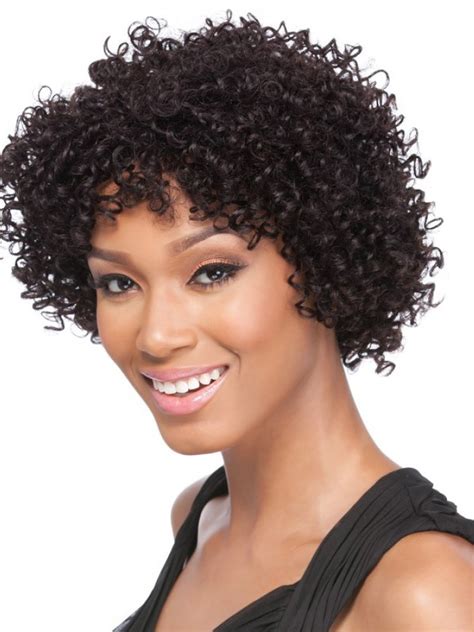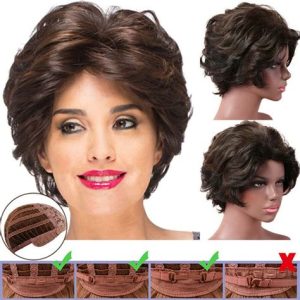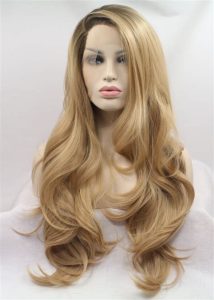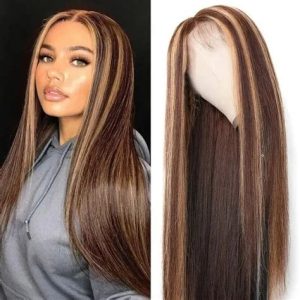Easeful Blonde Wavy Long African American Wigs: A 2025 Guide
Introduction
Wigs have become increasingly popular in recent years, as they offer a convenient and versatile way to change your look. Whether you’re looking for a new style, want to add some length or volume to your hair, or simply want to protect your natural hair from damage, a wig can be a great option.
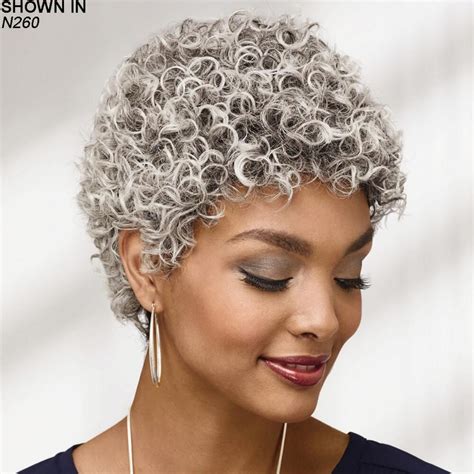
If you’re considering getting a wig, one of the first things you’ll need to decide is what type of wig you want. There are many different types of wigs available, including synthetic wigs, human hair wigs, and lace wigs. Each type of wig has its own advantages and disadvantages, so it’s important to do your research before making a decision.
Synthetic Wigs VS Human Hair Wigs
One of the biggest decisions you’ll need to make when choosing a wig is whether you want a synthetic wig or a human hair wig. Synthetic wigs are made from artificial fibers, while human hair wigs are made from real human hair.
Synthetic wigs are typically less expensive than human hair wigs, and they’re also easier to care for. However, they can be less natural-looking than human hair wigs, and they may not last as long.
Human hair wigs are more expensive than synthetic wigs, and they require more care. However, they look more natural and can last longer.
Lace Wigs
Lace wigs are a type of wig that is made with a lace cap. The lace cap is placed on your head, and the wig is then sewn onto the lace. This creates a very natural-looking wig that is difficult to tell apart from real hair.
Lace wigs are more expensive than other types of wigs, but they offer a number of advantages. They are very lightweight and comfortable to wear, and they can be styled in a variety of ways. Lace wigs are also very durable, and they can last for several years with proper care.
How to Choose the Right Wig
When choosing a wig, it’s important to consider your individual needs and preferences. If you’re not sure what type of wig is right for you, it’s a good idea to consult with a wig stylist. A wig stylist can help you choose the right wig for your face shape, hair type, and lifestyle.
Here are a few things to keep in mind when choosing a wig:
- Face shape: The shape of your face will determine what type of wig will look best on you. If you have a round face, you’ll want to choose a wig with a longer length and more volume. If you have an oval face, you can wear any type of wig.
- Hair type: Your hair type will also determine what type of wig is right for you. If you have fine hair, you’ll want to choose a wig with a light texture. If you have thick hair, you can wear any type of wig.
- Lifestyle: Your lifestyle will also play a role in choosing a wig. If you’re active, you’ll want to choose a wig that is easy to care for and style. If you’re more laid-back, you can choose a wig that requires more maintenance.
How to Care for Your Wig
Once you’ve chosen a wig, it’s important to take care of it properly. Here are a few tips for caring for your wig:
- Wash your wig regularly. How often you need to wash your wig will depend on how often you wear it and how much you sweat. However, it’s a good idea to wash your wig at least once a week.
- Use a wig shampoo and conditioner. When washing your wig, use a shampoo and conditioner that is specifically designed for wigs. These products will help to keep your wig looking its best.
- Avoid using heat on your wig. Heat can damage your wig, so it’s important to avoid using heat styling tools on it. If you need to style your wig, use a cool setting on your blow dryer.
- Store your wig properly. When you’re not wearing your wig, store it in a cool, dry place. This will help to prevent your wig from becoming damaged.
Conclusion
Wigs can be a great way to change your look, add some length or volume to your hair, or protect your natural hair from damage. If you’re considering getting a wig, do your research and choose the right wig for your individual needs and preferences. With proper care, your wig can last for several years and give you years of enjoyment.
Additional Information
Here are some additional resources that you may find helpful:


